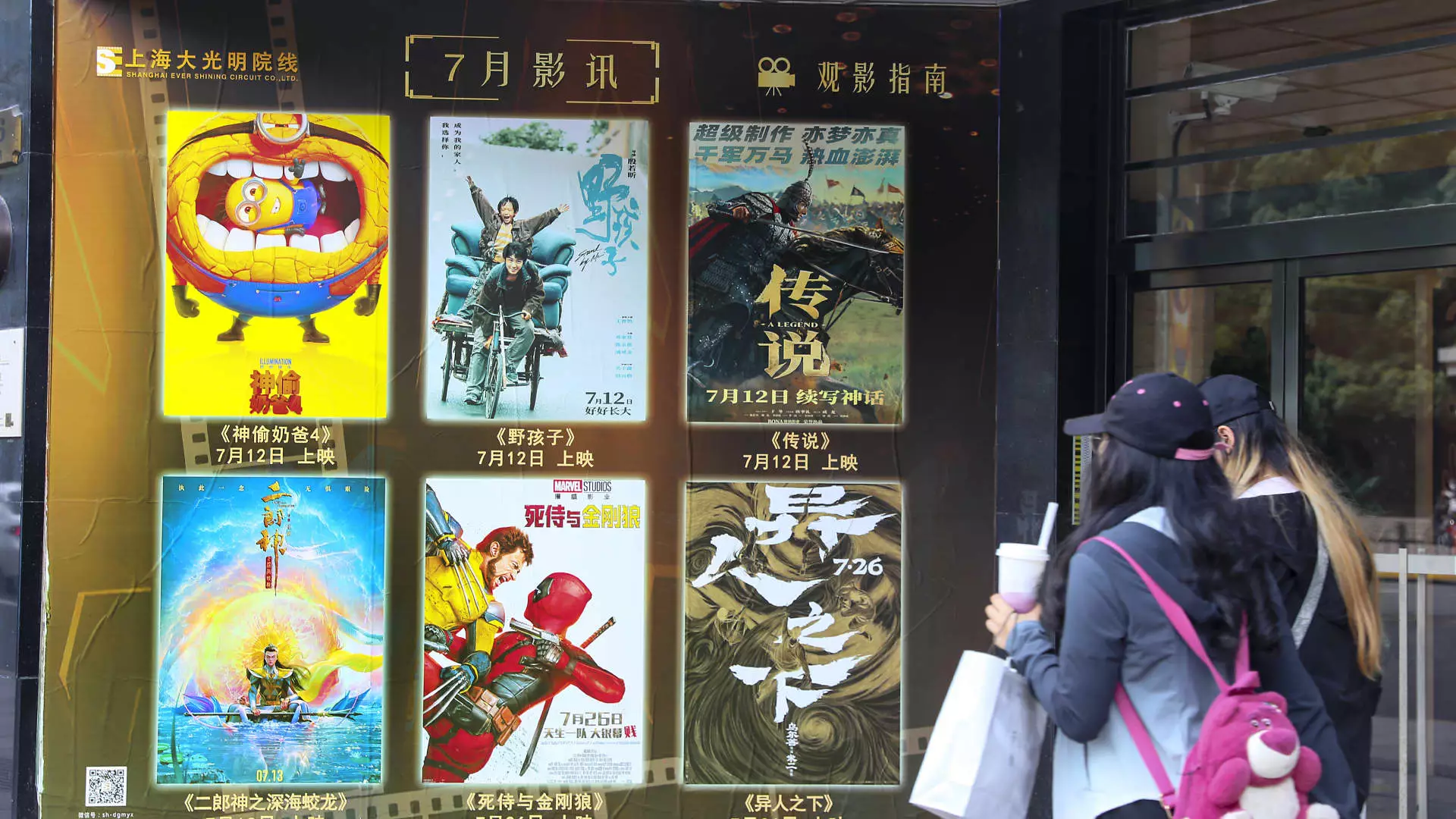The glamour of Hollywood is often perceived as a beacon of success and innovation, but beneath the surface lies a complex landscape fraught with economic challenges. Amidst the chaos of President Donald Trump’s trade war with China, the fragile balance that once allowed American studios to thrive in the lucrative Chinese market has precariously tilted. The recent imposition of tariffs on Chinese imports has not just impacted manufacturing; it has extended its ominous shadow over the entertainment industry. This is more than a simple trade dispute; it is a seismic shift in global cultural dynamics that could redefine the very fabric of Hollywood.
The Backlash from Beijing
As tensions escalated between the two global superpowers, China’s response was as swift as it was measured. Restrictions on the number of Hollywood films allowed into Chinese theaters have placed U.S. studios at a significant disadvantage. Once, the promise of box office gold in China gave Hollywood the confidence to shape films for international audiences, a tactic that now feels increasingly outdated. Disney and Warner Bros., two titans of cinema, have already seen detrimental effects on their stock values. This dip in confidence cannot simply be attributed to market fluctuations—it’s the unmistakable sign of a changing audience. Chinese viewers are, more than ever, turning to their homegrown productions, prioritizing local narratives over foreign ones.
The Numbers Tell a Story
As the Chinese domestic film industry flourishes, we are witnessing a dramatic transformation. Once a golden goose for American films, the Chinese market has evolved into a hostile terrain for U.S. studios. Ann Sarnoff, former chairwoman of Warner Bros., underscores this shift by highlighting how deeply American studios relied on China to bolster their profits. The expiration of the U.S.-China Film Agreement in 2017 only expedited this decline, removing a critical lifeline for Hollywood productions seeking exposure in Chinese theaters. In a stark reversal, box office receipts from U.S. films are no longer dependable, with studios adjusting their financial forecasts and often omitting expected revenue from Chinese cinema altogether—a clear indication of a lost market.
The Rise of Domestic Blockbusters
The emergence of homegrown films such as “Ne Zha 2,” which has triumphantly crossed the $1 billion mark within its local market, amplifies the narrative of a shifting landscape. In a country once enamored with Western cinema, local productions are vividly capturing the hearts and minds of audiences. The remarkable success of these films poses a critical question: how will American studios compete with such compelling and culturally resonant narratives? As China continues to refine its filmmaking capabilities, Hollywood finds itself scrambling to maintain relevance.
The Economic Ramifications
While the immediate impact of Hollywood’s struggles in the Chinese market can be measured in ticket sales, the broader economic implications are far more profound. Currency fluctuations, exacerbated by geopolitical tensions, further complicate the situation for U.S. film studios. As the dollar weakens, foreign box office returns can appear more appealing; however, rising operational costs threaten to erode profits. Such unpredictability adds an additional layer of complexity, leaving Hollywood executives in a state of perpetual uncertainty about the direction of their industry.
A Call to Adapt
In the eye of this storm, one must pose a crucial question: is Hollywood adaptable enough to weather this cultural and economic upheaval? No longer can American studios operate on the assumption that their films will effortlessly bridge cultural divides or command the same box office might they once enjoyed. Instead, they must embrace a newfound humility and willingness to evolve. This transformation starts with a shift in mindset—studios must engage with audiences not just on a superficial level but on a foundational cultural ground. The newfound focus on storytelling that resonates locally will be paramount if Hollywood wishes to stake its claim in an increasingly competitive global landscape.
In a world that is changing rapidly, Hollywood must take bold steps to redefine its role, confront its biases, and ultimately, listen to a diverse range of voices, both within its productions and in the stories it chooses to tell. The glitz and glam may still attract audiences, but embracing authenticity and cultural nuance is what will open new doors in the long term.


Leave a Reply